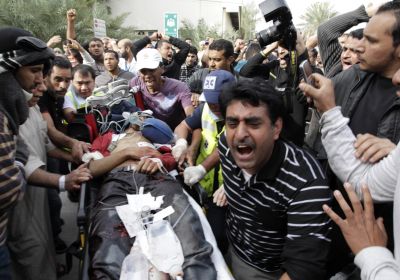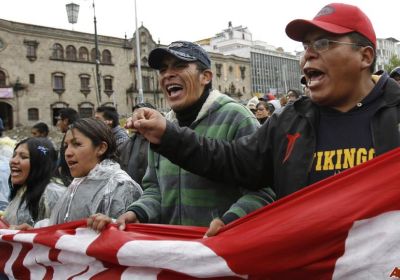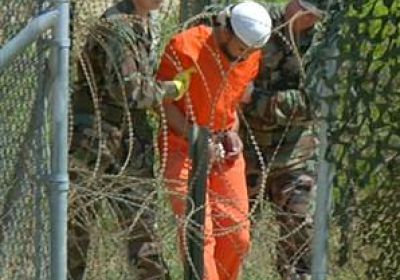The sixth congress of the Communist Party of Cuba ended on April 19. Not by accident, the date chosen for the meeting coincided with the commemoration of the 50th anniversary of the victory of Playa Giron [Bay of Pigs — at which the Cuban people defeated a US-sponsored invasion in 1961].
-
-
A request by the United Nations special rapporteur on torture, Juan Mendez, to visit alleged WikiLeaks whistleblower, United States soldier Bradley Manning, was denied in April. At the time, Manning was being held in solitary confinement at Marine Corps Brig, Quantico in Virginia. Speaking through his lawyer, Manning accused the guards at Quantico of treating him differently to other prisoners and reported he had been forced to strip naked by guards every night. Mendez said US authorities had “not been receptive to a confidential meeting” with Manning.
-
Europe’s biggest polluters have made billions out of the European Emissions Trading System (ETS). But a new briefing by Carbon Trade Watch (CTW) says the scheme will ensure industry will not have to cut its emissions until at least 2017. The ETS sets a cap, or upper limit, on total emissions for 11,000 power stations and industrial plants in 30 European countries. Each company receives permits to pollute, which can be traded with other companies.
-
 Since January, tens of thousands of United Socialist Party of Venezuela (PSUV) militants, together with activists from other left parties and social movements, have been debating the future of Venezuela’s revolution. Their sights are set on the crucial 2012 presidential elections. This years’ pro-revolution May Day march will be the platform to officially launch Venezuelan President Hugo Chavez’s re-election bid. The US-funded right-wing opposition is yet to decide its candidate, but the election will be critical to the future of a country undergoing a profound process of change.
Since January, tens of thousands of United Socialist Party of Venezuela (PSUV) militants, together with activists from other left parties and social movements, have been debating the future of Venezuela’s revolution. Their sights are set on the crucial 2012 presidential elections. This years’ pro-revolution May Day march will be the platform to officially launch Venezuelan President Hugo Chavez’s re-election bid. The US-funded right-wing opposition is yet to decide its candidate, but the election will be critical to the future of a country undergoing a profound process of change. -
 Sixty-two protesters had been killed by Syrian security forces on April 29, Al Jazeera reported that day. This was the second Friday in a row that Syrian authorities had used lethal forces against protesters — 100 protesters were killed in Deraa on April 22. The United States responded by imposing sanctions on three leading figures in the regime — including President Bashar al-Assad’s brother, but not the president — and the Syrian intelligence agency.
Sixty-two protesters had been killed by Syrian security forces on April 29, Al Jazeera reported that day. This was the second Friday in a row that Syrian authorities had used lethal forces against protesters — 100 protesters were killed in Deraa on April 22. The United States responded by imposing sanctions on three leading figures in the regime — including President Bashar al-Assad’s brother, but not the president — and the Syrian intelligence agency. -
In another important step towards winning Bolivia’s national sovereignty, the country’s Plurinational Assembly has announced the expulsion from Bolivia of USAID’s Environment and Economic Development (EED) program. USAID is funded by the US government and on its website says one of its aims is “furthering America’s foreign policy interests”. The agency has come under fire for its role in funding pro-US right-wing organisations in Bolivia and the region.
-
A number of left groups in Venezuela and solidarity groups internationally have expressed concern over the April 23 decision by Venezuelan authorities to arrest well-known Colombian journalist and supporter of the Venezuelan revolution, Joaquin Perez Becerra. Perez Becerra was arrested when he tried to enter the country through Caracas Airport. He was deported two days later to neighbouring Colombia to face trial for supposed “terrorism” charges in Colombia.
-
 Several weeks of conflict between the government of President Evo Morales and Bolivian trade unions has again thrown into sharp relief some of the serious challenges confront Bolivia’s process of change. For two weeks in April, the Bolivian Workers Central (COB) called mobilisations across various cities to protest the government’s proposed 10% pay rise for teachers, health workers, police and soldiers, and 20% rise in the minimum wage.
Several weeks of conflict between the government of President Evo Morales and Bolivian trade unions has again thrown into sharp relief some of the serious challenges confront Bolivia’s process of change. For two weeks in April, the Bolivian Workers Central (COB) called mobilisations across various cities to protest the government’s proposed 10% pay rise for teachers, health workers, police and soldiers, and 20% rise in the minimum wage. -
 The US-led military operation in Libya has morphed from the initial imposition of a “no-fly zone” — ostensibly to prevent Muammar Gaddafi’s regime from carrying out a massacre — into an ongoing bombing campaign with no end in sight. And now there’s increasing talk of the use of ground forces until Gaddafi is overthrown and a new government, no doubt Western-approved, takes his place. Libya discussion Left wrong to oppose military intervention Two wars in Libya
The US-led military operation in Libya has morphed from the initial imposition of a “no-fly zone” — ostensibly to prevent Muammar Gaddafi’s regime from carrying out a massacre — into an ongoing bombing campaign with no end in sight. And now there’s increasing talk of the use of ground forces until Gaddafi is overthrown and a new government, no doubt Western-approved, takes his place. Libya discussion Left wrong to oppose military intervention Two wars in Libya -
 The release of secret US Department of Defense files on prisoners held by the US as part of the “war on terror” confirms, in the US government’s own words, the shoddy and unreliable nature of the “evidence” used to condemn prisoners at its Guantanamo Bay torture camp. The files released by WikiLeaks also show the mentality of the US government in its attempts to prosecute and gather information about “terrorists” to justify its wars of aggression. Apart from those known to be innocent by their US captors, many others were condemned on the flimsiest of pretexts.
The release of secret US Department of Defense files on prisoners held by the US as part of the “war on terror” confirms, in the US government’s own words, the shoddy and unreliable nature of the “evidence” used to condemn prisoners at its Guantanamo Bay torture camp. The files released by WikiLeaks also show the mentality of the US government in its attempts to prosecute and gather information about “terrorists” to justify its wars of aggression. Apart from those known to be innocent by their US captors, many others were condemned on the flimsiest of pretexts. -
 Pablo Solon, Bolivia’s permanent representative to the United Nations, made the speech below at an April 20 session of the UN general assembly. * * * Victor Hugo, the author of Les Miserables, once wrote: “How sad to think that nature speaks and mankind doesn’t listen.” We are here today to attempt to have a dialogue not just among states, but also with nature. Although we often forget it, human beings are a force in nature.
Pablo Solon, Bolivia’s permanent representative to the United Nations, made the speech below at an April 20 session of the UN general assembly. * * * Victor Hugo, the author of Les Miserables, once wrote: “How sad to think that nature speaks and mankind doesn’t listen.” We are here today to attempt to have a dialogue not just among states, but also with nature. Although we often forget it, human beings are a force in nature. -
A federal budget containing the largest single-year spending cuts in US history was grudgingly passed by Congress on April 14. The cuts, amounting to US$38.5 billion, will be implemented until the end of the financial year on September 30, 2011. President Barack Obama hailed the budget agreement as a victory. He said: “This is an agreement to invest in our country’s future while making the largest annual spending cut in our history.”